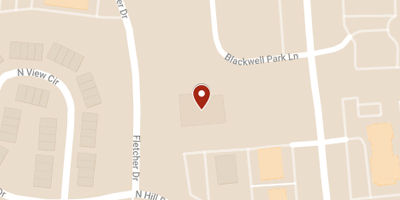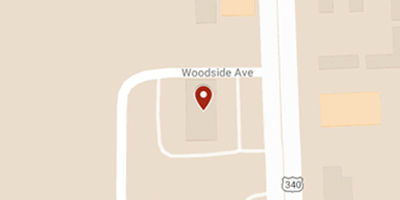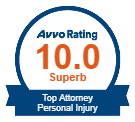Lately the weather in Virginia has been unpredictable. Yesterday it was a beautiful 57 degrees and sunny. This morning it dropped to 43 degrees with light rain, and as you’re driving home from work, the temperature is rapidly dropping below 30 degrees. Since you’re used to the normally mild Virginia winter weather, these drastic changes are somewhat unnerving, especially since it has now started to snow.
Traffic has slowed to a crawl due to the icy and slick snow accumulation. You have five miles until your exit, and you’re creeping along to avoid slipping. You decide to slowly move into the right lane to prepare yourself for your exit. As you inch over, an SUV is quickly approaching from behind. You complete your lane change, but apparently the SUV misjudges how icy the roads have become, and rather than slowing down as he gets closer to you, he loses control of the vehicle and can’t stop.
He slams on his brakes to no avail and spins out of control. You see him in your rearview mirror, coming straight towards you. You try to maneuver to the side but you’re too late. The SUV rams straight into your side, catapulting you toward the shoulder and into a ditch.
Thankfully, you only suffer a bump on the head and a few cuts on your leg. However, as you attempt to get out of your car, you realize the door is completely smashed in. It won’t open. You frantically look to the other side, hoping you can crawl over to the passenger door, but it is wedged and blocked up against the side of the ditch.
You look toward the highway, hoping someone will come to your rescue, but from what you can see, the SUV not only caused your accident, but a multi-car pile-up as well. No one is moving. Meanwhile, the snow is already beginning to pile up on your windshield.
Will you be safe sitting in your car, without heat or help, until you’re rescued? What if it takes hours for an ambulance to get through?
Dangers of Being Stranded Following a Winter Collision
The recent November snowstorm in Buffalo, New York, made the dangers of snow and freezing weather clear to the whole nation. Winter weather can be fatal for motorists!
Although residents of Buffalo aren’t strangers to snow, when caught off guard, even the familiar can become dangerous. Nearly 150 cars became stranded for more than 24 hours during the snowstorm, causing severe injuries, hypothermia, dehydration and even one fatality. Although Buffalo, and indeed the entire North, is more likely to see these kinds of storms than the South, weather can be extremely unpredictable. One day could be a mild 60 degrees, and the next could produce dangerously slick roads in a few hours. This is why it is extremely important to know your driving and accident risks and the risks you face after an accident.
If a winter accident leaves you stranded, the cold weather could cause you more injury than the initial impact. These risks include:
- Frostbite. When your skin and underlying tissues and muscles get so cold that they begin to freeze, you have suffered frostbite. First your skin becomes very cold and red, then numb, hard and pale. Depending on the temperature, frostbite can set in in as little as 10 minutes. Prolonged frostbite can lead to infection, tissue and nerve damage, and necrosis (death of tissue, generally needing to be amputated).
- Dehydration. According to studies conducted by the University of New Hampshire, dehydration risks increase during cold weather, putting you at risk for a brain injury (oxygen-carrying fluids slow down, causing brain tissue to lose elasticity and nourishment), seizures, coma, and even death.
- Shock. Shock is a life-threatening condition that occurs when the body is not getting enough blood flow. When you become dehydrated, your blood flow naturally slows down, making it harder for your veins to pump blood through your body. Lack of blood flow means that the cells and organs do not get enough oxygen and nutrients to function properly. Multiple organs can suffer damage and fail as a result.
- Rapid open wound sepsis and necrosis. When an open wound or laceration suffers hypothermia, the tissues surrounding the wound can quickly become necrotic (dead); the cold air can also more easily affect the open wound (since there is no longer skin to protect it), causing infection and deeper frostbite leading to an increased chance of infection and sepsis.
- Hypothermia. Hypothermia is when your body begins to lose heat faster than it produces it. When your body temperature drops, your heart, nervous system and other organs can't work normally. Left untreated, hypothermia can eventually lead to complete failure of your heart and respiratory system and to death.
- Death. Depending on the severity, all of the above risks could be fatal if left unattended.
Preparing for the Worst
Even though Virginia is not known for its harsh winters, unpredictable weather can still put you and your family at risk. Don’t rely on the “usual” climate to keep you safe. Instead, prepare your car for the unpredictable. Make sure you have extra blankets, safety tools, first aid kits, and emergency gear in your vehicle at all times. You never know when a freak snowstorm may hit, and you don’t want to be left out in the cold.
Already suffered from a stranding accident? Contact us today for a free consultation and review of your case. You could be entitled to damages and compensation not only for the accident, but also for an injuries sustained as a result of being stranded. You owe it to yourself to call because we owe it to you to get justice. Call now.
|
Related Links: |














